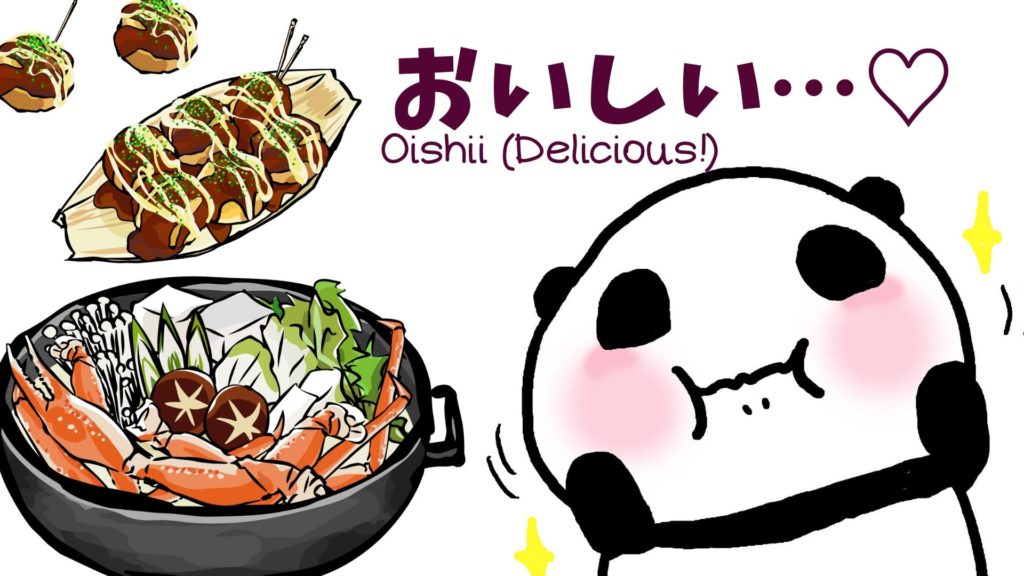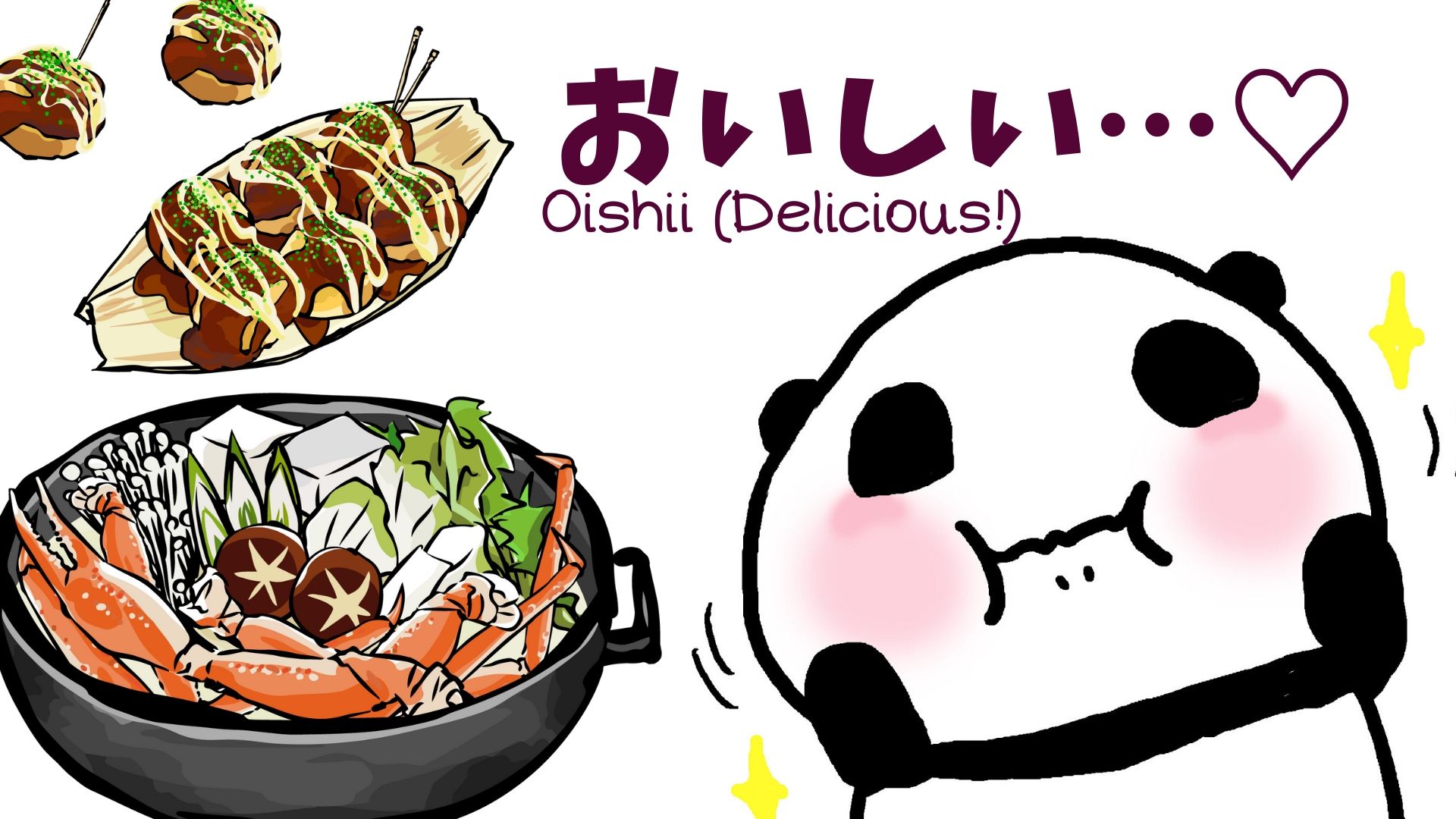We had lots of delicious food in Japan. If you are a food lover, Japan is the right place to be. In Japanese, “delicious” is “おいしいOishii”. It’s not difficult for English native speakers to pronounce, and it is a very useful word.
In this story, I would like to explain a bit more about what “おいしいOishii” means and how to use it. I would also recommend practising the conjugation of Japanese “i-adjective” with this phrase “おいしいOishii”.
How to say “Delicious!” in Japanese

1. おいしいOishii
The Japanese word which corresponds to “delicious” is “おいしいOishii” and you can use it when talking about both food and drink. When you want to point what exactly you think is delicious, you can put the noun (food or drink) before “Oishii”.
これ、おいしい。
Kore Oishii.
This is delicious.
ぜんぶ、おいしい。
Zenbu Oishii.
All (food or drink or both) tastes good!
2. うまいUmai (informal)
In a casual conversation, you may hear this word “うまいUmai” which can mean “delicious” when someone is talking about food or drink. “うまいUmai” sounds very casual, but it is better to know the meaning even if you don’t use it.
日本の魚はうまい!
Nihon no sakana wa Umai.
Japanese fish is delicious!
Interestingly, “うまいUmai” is also used when people describe when someone is good at something: (A noun) ga +うまいUmai.
彼はカラオケがうまい。
Kare wa Karaoke ga Umai.
He is good at Karaoke (singing songs).
How do you say “Very Delicious” in Japanese?
If you want to say “This is very delicious”, you can add “とてもTotemo” which means “very” in front of “おいしいOishii”.
とてもおいしいです。
Totemo Oishii desu.
This is very delicious.
Conjugation for “おいしいOishii”
“おいしいOishii” is an i-adjective. The conjugation for “おいしいOishii” is the following:
| おいしい | oishi-i | It’s delicious. (present/positive) |
| おいしくない | oishi-kunai | It’s not delicious. (present/negative) |
| おいしかった | oishi-katta | It was delicious. (past/positive) |
| おいしくなかった | Oishi-kunakatta | It was not delicisou. (past/negative) |
What does “おいしいOishii” mean?
“おいしいOishii” means delicious, to taste good. We use this word with any kind of food and drink. Occasionally, it means “better than usual” “profitable” or just “lucky” when it is used for things or work situations. It’s like a slang word, so it’s better not to use in formal conversations. For example;
あの仕事はおいしかった。
Ano shigoto wa oishi-katta.
That work was luckily better than usual (it was easy but profitable).
かなりおいしい条件だったけど、でも…
Kanari oishii jouken datta kedo, demo…
It was very a tempting condition (which was offered), but…
How do you say, “Is it delicious?” in Japanese?
When you ask somebody, “Is it delicious?”, you can say “Oishii-desuka?” or even just “Oishii?” with upper intonation.
おいしいですか?
Oishii desuka?
Is it delicious?
“Oishii-desuka?” sounds more polite than “Oishii?” When you answer, you may say;
はい、おいしいです。
Hai, oishii desu.
Yes, it is delicious.
いいえ、おいしくないです。
Iie, oishi-kunai desu.
No, it’s not delicious.
To soften your negative answer
Japanese people don’t really like the direct expression like “いいえ、おいしくないです(No, it’s not delicious)”. They can accept it if it is obvious that you are a non-native speaker of Japanese, but I would recommend you remember the phrases which soften your negative answers for building smooth and good relationships with Japanese people.
これは、あまり好きではないです。
Kore wa, amari suki dewa naidesu.
I don’t really like this.
これは、ちょっと…
Kore wa, chotto…
This is not really…(my favorite).




Comments